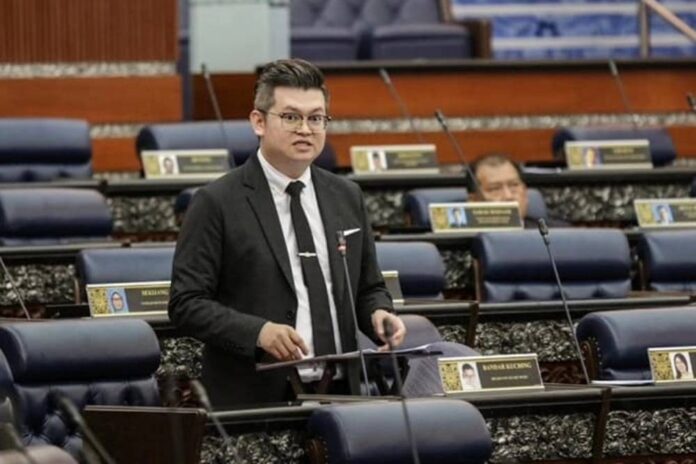Bandar Kuching MP Dr Kelvin Yii welcomed the proposed amendments to the Inland Revenue Act 1995 (Act 533) towards realising the inclusion. — Borneo Post Online pic
Follow us on Instagram, subscribe to our Telegram channel and browser alerts for the latest news you need to know.
KUCHING, Oct 10 — The dissolution of Parliament, should it happen anytime soon, would delay the process of including representatives from Sabah and Sarawak in the board of directors of the Inland Revenue Board (IRB), said Bandar Kuching MP Dr Kelvin Yii.
He welcomed the proposed amendments to the Inland Revenue Act 1995 (Act 533) towards realising the inclusion, but he also acknowledged that this had yet to be tabled in Parliament amidst talks of an early general election.
“The dissolution of Parliament, as predicted, will delay this process all over again, causing us to lose out on millions (in ringgit),” he said in a statement yesterday.
Last Thursday, Finance Minister Tengku Datuk Seri Zafrul Tengku Abdul Aziz, in a statement, said the Federal Cabinet had approved amendment to Act 533 to include state civil servants from Sabah and Sarawak in IRB’s board of directors. Tengku Zafrul said the decision was made during a Cabinet meeting on Sept 30, and the proposed amendment would be tabled in Parliament to seek approval.
The Finance Minister pointed out that upon approval, the amendment would institutionalise representatives from Sabah and Sarawak in the IRB board apart from enabling civil servants from the two states to be appointed.
On another matter, Dr Yii regarded the allocation for development outlined in Budget 2023 for Sabah and Sarawak as ‘inadequate’.
He observed that the development funds for Sabah and Sarawak had gone down to 12 per cent from the overall expenditure of RM372.3 billion.
Giving a comparison, Dr Yii said in 2020 under then-Pakatan Harapan (PH) administration, the total development funds allocated to Sabah and Sarawak was 17.14 per cent out of the whole national budget, while in 2021 and 2022 during the Perikatan Nasional (PN) rule, the allocations for Sabah and Sarawak were at 13.91 per cent and 12.9 per cent, respectively.
“While by quantum we do see an increase, it is still inadequate and more needs to be done to correct the imbalance in development in both our regions,” said Dr Yii, adding that he would raise the issue during the budget debate in Parliament, as well as question why more funds were channelled to Sabah that those to Sarawak.
In the Budget tabling, Tengku Zafrul announced development allocations of RM6.3 billion to Sabah, and RM5.4 billion to Sarawak.
Another issue raised by Dr Yii was the lack of transparency with regard to the direct financial allocations to Sabah and Sarawak, especially under the constitutional special grants under Article 112D of the Federal Constitution.
In previous budgets, the Bandar Kuching MP said ‘special grants to Sarawak or Sabah’ had been stated clearly with the amount displayed for transparency.
“It was through those figures that I was able to point out that there was a reduction of the special grants since 2021, when PN took over and since then, they have reduced it (special grants) by half of what was increased by PH during its time,” he pointed out. — Borneo Post Online



